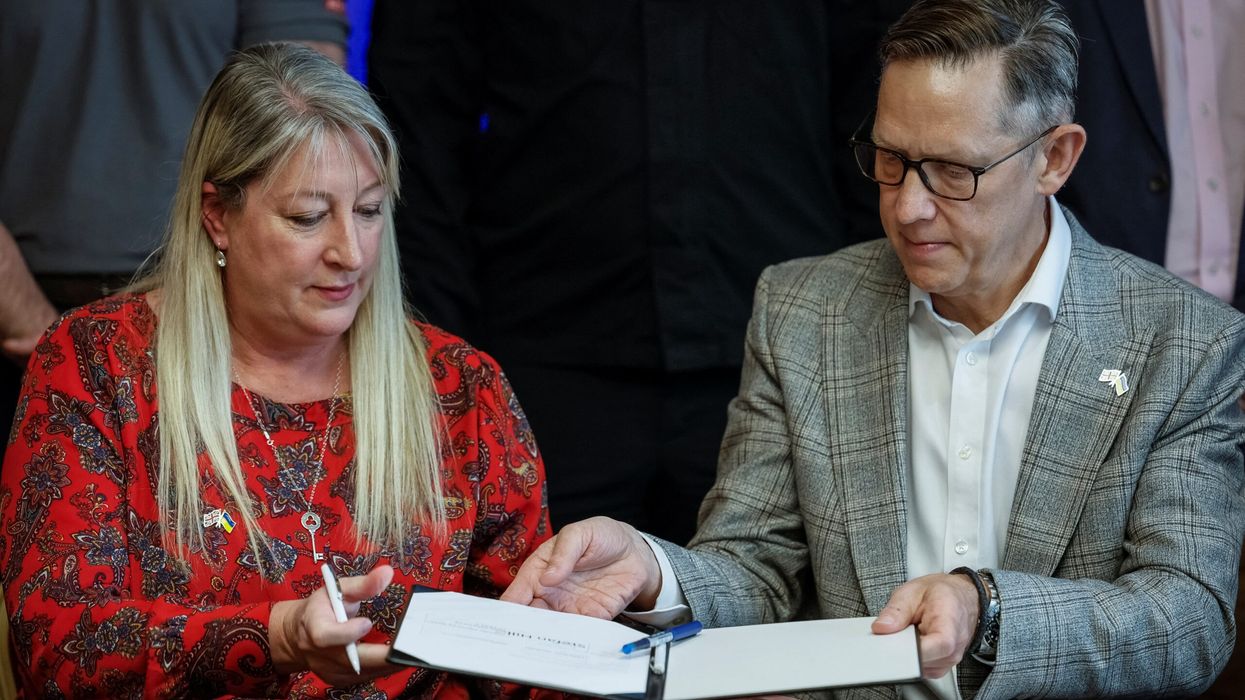OFFICIALS in Kyiv have announced that Ukraine and Britain have entered into a framework agreement aimed at collaborating in the defence and arms manufacturing sector. This agreement is seen as a crucial component of Ukraine's efforts during wartime to enhance its domestic weapons industry by partnering with allies.
The document was signed at a military industry conference in Kyiv that was attended by about 30 British defence companies who visited to discuss potential joint ventures with Ukrainian weapons and defence producers.
"It is the first intergovernmental agreement on cooperation," Oleksandr Kamyshin, Ukraine's minister for Strategic Industries, told reporters after the signing ceremony.
"Today British companies are working with Ukrainian companies and looking for opportunities to produce more weapons jointly."
Greg Hands, UK minister for trade policy, said he hoped the agreement would bring gains for Ukraine on the battlefield and also benefit its battered economy in the longer term.
More than two years since Russia's February 2022 invasion, Ukrainian troops are outgunned and outmanned on the battlefield by a better-equipped and large foe.
Amid mounting concerns that military support from Kyiv's Western partners is faltering, the Ukrainian government is ramping up efforts to produce its own weapons and to lure major Western producers to set up repair and production facilities in Ukraine, despite the threat of Russian bombardment.
British defence company BAE Systems, one of the first Western producers to set up a local entity in Ukraine, signed an agreement with Britain's defence ministry to conduct maintenance, repair and overhaul of light guns on the ground in Ukraine.
Officials also said they hoped for more projects this year in the drone production sector. Many of the companies attending the conference were drone producers.
Ukraine aims to produce about one million first-person view (FPV) drones this year and is increasing its production of longer-range attack drones to conduct strikes deep inside Russia.
"We now recognise we need to step up to partnering with the Ukrainian defence industry to position Ukrainian defence industry to be better able to respond at speed and to support the Ukrainian economy...," said Andy Start, chief executive of the UK's Defence Equipment and Support.
"The momentum is building and we wish to see that momentum to continue to build at pace so we are stronger together."
(Reuters)





